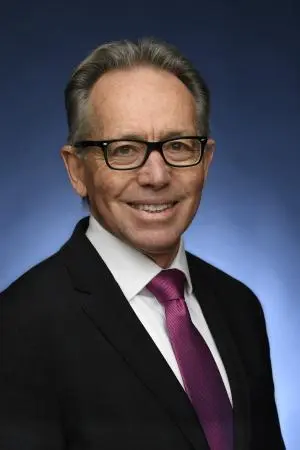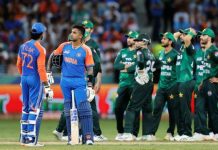As Australian High Commissioner Neil Hawkins concludes his diplomatic tenure in Pakistan, he leaves behind not only a legacy of diplomatic engagement but also a deep personal connection with Pakistan’s national sport hockey. During his time in Islamabad, Mr. Hawkins distinguished himself as a sincere friend of Pakistan and an ardent supporter of reviving the country’s once-glorious hockey tradition.
Unlike most envoys who limit their engagements to official diplomacy, Neil Hawkins went beyond protocol. He took a keen interest in Pakistan’s sporting culture, particularly field hockey a sport that once brought Pakistan global fame through Olympic and World Cup victories. Recognizing the decline of the game in recent years, he made genuine efforts to help Pakistan restore its past glory on the international stage.
Throughout his tenure, Mr. Hawkins met with numerous sports officials, hockey administrators, and young players. His aim was not just symbolic he wanted to create real impact by helping Pakistan develop the sport at the grassroots level. Understanding that true revival begins with youth engagement, he sought to channel his country’s sporting expertise toward rebuilding Pakistan hockey from the ground up.
One of his notable contributions was facilitating equipment support from Hockey Australia, including the distribution of hockey sticks and training kits to young players. These gestures reflected more than diplomatic courtesy they were acts of genuine friendship and encouragement for aspiring Pakistani athletes who often lack basic facilities.
He also supported initiatives aimed at fostering school and club-level hockey, encouraging young players to stay connected with the sport. His efforts inspired optimism within the small but passionate community of hockey lovers in Pakistan. Unfortunately, however, the broader institutional support that was needed to sustain such initiatives was missing.
Despite the High Commissioner’s enthusiasm and sincere intentions, his efforts could not produce the desired results largely due to the indifference and internal disarray of the Pakistan Hockey Federation (PHF). Over the years, the PHF has been marred by administrative infighting, inconsistent policies, and lack of vision, all of which have severely hampered the sport’s progress.
A glaring example of this mismanagement can be seen in the ongoing Sultan of Johor Cup in Malaysia, where Pakistan’s junior hockey team failed to qualify for the final. Shockingly, nearly half the players selected for the “junior” team are actually senior players. This flawed approach relying on experienced players in a junior tournament not only undermines the purpose of youth development but also deprives genuine young talent of much-needed exposure.
When senior players eventually retire, Pakistan will face an inevitable vacuum of replacements, as the junior structure is not producing new stars. This short-sighted selection policy reflects the chronic issues within the federation a lack of planning, meritocracy, and commitment to nurturing the next generation.
Adding to the woes is the growing disconnect between the Pakistan Sports Board (PSB) and the PHF. The two bodies, instead of working in coordination, often find themselves at odds over financial and administrative matters. This institutional discord has paralyzed many developmental programs and discouraged clubs and academies that once played a vital role in producing players.
The situation in Islamabad is particularly disheartening. The PSB’s recent decision to increase ground fees has virtually driven hockey out of the capital. The Naseer Bunda Hockey Stadium, once bustling with local clubs and training sessions, now stands largely deserted. Most clubs simply cannot afford the inflated fees, leaving young players without a venue to practice or compete. This single decision has further alienated grassroots hockey and deprived the city’s youth of a constructive sporting outlet.
Hockey, once a symbol of national pride, has been in free fall for years. The reasons are many lack of infrastructure, insufficient funding, outdated coaching methods, and internal politics within the PHF. The national team’s inability to qualify for major international events like the Olympics and World Cup has further eroded public interest.
While other nations have modernized their hockey systems through scientific training, youth academies, and sponsorships, Pakistan continues to rely on outdated structures. Even though the Prime Minister is the Chief Patron of the PHF, there has been little practical involvement from the top leadership. Successive governments have largely ignored the national sport, treating it as a relic of the past rather than a symbol worth reviving.
In this bleak scenario, Neil Hawkins stood out as a rare foreign envoy who truly cared. His engagement with Pakistan’s hockey fraternity was driven by genuine affection rather than diplomatic formality. He believed in Pakistan’s potential and often expressed confidence that the nation could reclaim its place among hockey’s elite provided it reorganizes its domestic structure and restores professionalism.
His tenure will also be remembered for promoting people-to-people ties between Pakistan and Australia through sports diplomacy. Hockey served as a bridge reflecting not just athletic cooperation but a shared passion for fair play and teamwork.
As he departs Pakistan, Mr. Hawkins carries with him the respect and affection of many Pakistanis athletes, journalists, and ordinary citizens alike. His sincere efforts to promote goodwill and sportsmanship will be remembered long after his departure.
However, his story also serves as a reminder and a challenge for Pakistan’s sports authorities. If a foreign diplomat can recognize the potential of Pakistan hockey and attempt to revive it, why can’t those entrusted with its future show the same dedication?
The decline of hockey is not inevitable it is the result of neglect and misplaced priorities. With serious reforms, transparent governance, and support from the state, the sport can still rise again.
Neil Hawkins may be leaving, but his vision for Pakistan hockey a vision rooted in hope, hard work, and friendship must not be allowed to fade. For now, Pakistan bids farewell to a true friend who saw greatness where others saw decline and who believed that the green shirts could, one day, shine again.

















